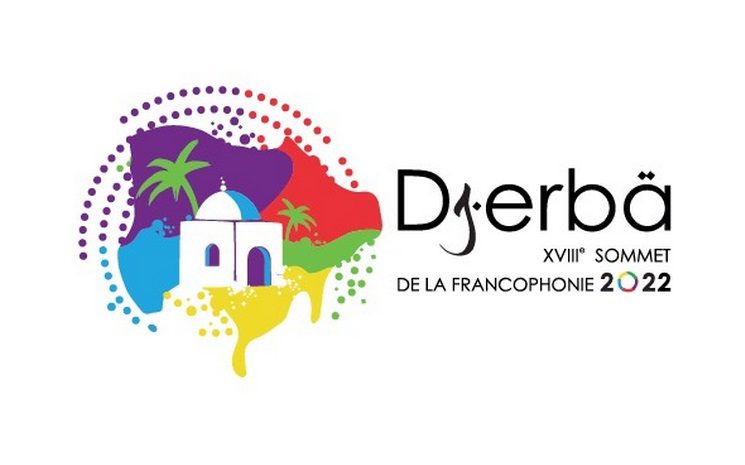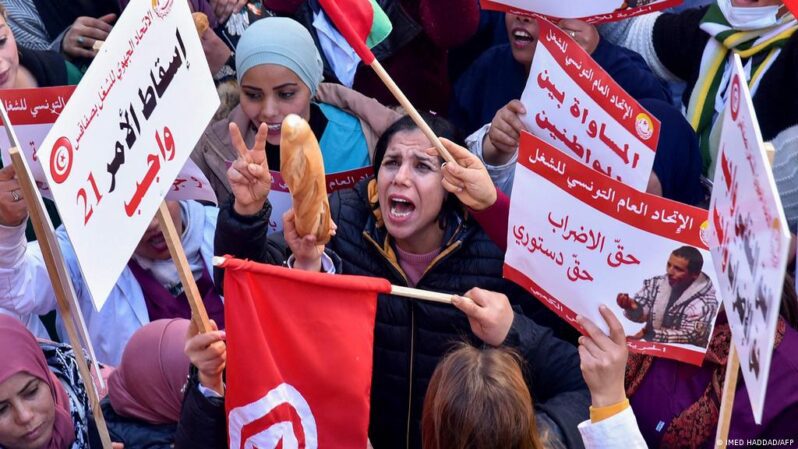The Francophonie Summit in Djerba: A Theatre for Political Messaging?

As soon as the Eighth Tokyo International Conference on African Development ended in Tunis, Tunisian Prime Minister Najla Bouden rushed to Paris to participate as a guest of honor in the business leaders’ conference held by the Movement of French Enterprises (MEDEF) from August 29 to 31. The stated theme of the meeting was developing economic cooperation between French and Tunisian businesses. However, Bouden surprised everyone by announcing from there, rather than from Tunisia, that the International Organisation of La Francophonie (OIF) Summit will be hosted on the island of Djerba. The summit had already been postponed twice and may have been postponed further due to the political context in Tunisia. Bouden’s speech, which she delivered in fluent and expressive French (in contrast to her few official speeches in Arabic), poeticized the news by invoking the island’s mythological symbolism. She referenced Homer’s Odyssey and its hero Ulysses, who was so enchanted by the dreamy melodies of sirens that he almost forgot why he had come. By bringing up fictional calls from mythology instead of the real calls coming from the opposite coast, Bouden had unwittingly expressed the state’s mindset. The mothers of the migrants who drowned off the shores of neighboring Zarzis have lost their voices trying to address willfully deaf officials. There, demands for truth were halted by police barricades erected on the bridge leading to the island – barricades separating the bitter reality from the dreamy, mythological image that the state wants to project abroad.
The Context of the Summit
Originally scheduled for 2020, the Francophonie Summit was postponed twice during the past two years. The first postponement was because of the COVID-19 pandemic, while the second was because of the misgivings that many countries – including OIF members – had about the future of the political process in Tunisia following the 25 July 2021 measures. The fate of this summit remained uncertain, with suggestions made to cancel it or hold it via video. Attempting to exploit the situation, Canada had offered to host the summit, before it was officially decided that it would be held on 19 and 20 November 2022 on Djerba.
The main topics discussed at the event included the complicated international context of the global economic repercussions of the Russia-Ukraine war and the challenges facing several member states. French President Emmanuel Macron did not neglect to mention his country’s concerns about growing Russian influence in several francophone countries. He referenced by name the Central African Republic, where Wagner paramilitaries now have much influence in politics and media, and numerous Russian companies, such as Lobaye Invest Sarlu and Midas Resources, that have begun to have a strong influence on the economy through investment in mining.
Under this pretext, Mali, Burkina Faso, and Guinea were not invited to the summit. This step was justified on the basis of military coups that had damaged the democratic process in these countries. This argument is not entirely convincing because of the occurrence of similar turns undermining the democratic system in other countries belonging to the OIF or enjoying observer status, including Tunisia. One of the reasons that can be deduced is the departure of these countries from the French political and security umbrella. With France ending Operation Barkhane in Mali, the military elite ruling the country has begun building a military and strategic alliance with Russia, and the ruling forces in the other two countries are following suit.
Hence, this summit came at a time when French is declining as a lingua franca in francophone countries themselves and voices condemning French influence in Africa are escalating. According to Macron, these calls are the result of media campaigns against France, primarily by Russia. He said that the era of colonialism has ended, its place taken by new space for integration and cooperation. Such a discourse was unconvincing for many of the summit’s participants. Tunisian President Kais Saied himself did not hesitate to cast doubt over it when he said that “La Francophonie” is not one of his favorite terms. Such criticisms show how politically ossified the OIF has become. They reflect the failure to form a real plan to develop it in a pluralistic manner that allows an effective and dynamic balance between its various members so that it does not remain a mere tool of French soft power.
Lackluster Maghrebi Attendance
In a clear reflection of strained Moroccan-Tunisian and French-Moroccan relations, Morocco maintained only a minimal diplomatic representation at this summit led by Nadia El Hnot, director of cooperation and cultural action in the Ministry of Foreign Affairs and personal representative of the prime minister to the OIF. Morocco also refrained from declaring diplomatic support for convening the summit in Tunisia. Algeria remained officially absent from the event in a clear embodiment of Algerian President Abdelmadjid Tebboune’s policy on the OIF. Tebboune’s stance is radical compared to that of his predecessor Abdelaziz Bouteflika. Starting in 2002, under the latter, Algeria participated in OIF meetings under various designations, including “special guest” and observer.
Algeria’s decision not to participate in the latest summit had been very clear since the concluding statement of the Arab League summit held in the country. The statement made no reference to the Francophonie Summit in Tunisia even though it mentioned other diplomatic events. Tebboune also saw fit to attend the World Cup opening ceremony in Qatar while the summit was convening. The reasons for this diplomatic coldness, despite multiple recent bilateral meetings on several levels (Macron’s visit to Algeria as the head of a high-level delegation, and Algerian Prime Minister Aymen Benabderrahmane’s meeting with the French prime minister in Algeria in October), are obvious. The most important issues between the two sides remain deadlocked. The most significant may be the failure to reach new agreements to increase France’s demand for Algerian gas, as well as France’s reduction of visas to Maghrebi states because of the informal migration problem, which has also become a disguised means to extort them over other issues. Macron openly stated this on the sidelines of the summit: “France’s decision to halve the number of visas granted to Algeria and Morocco has begun to bear fruit”.
A Free Pass?
Economic matters were much more prominent in this summit than in previous summits. This round was attended by a number of major enterprises within the Francosphere, 27 of which had formed an “Alliance of Francophone Employers” last March in Tunisia based on the 2021 Paris Joint Declaration to Reinforce the Economic Francophonie. Digital technology investment was also a key theme of this summit, as reflected by its slogan: “Connectivity in diversity: digital technology as a vector for development and solidarity in the Francosphere”. Bouden attempted to exploit this slogan politically, presenting the “online consultation” from last January to March as a “contribution to strengthening the participation of youth and women in particular in setting the country’s political, social, and economic orientations”.
Bouden’s discourse and the whole process accompanying the Francophonie Summit, beginning with the diplomatic efforts to confirm that it would be held in Tunisia, reflects the current governing systems’ obsession with finding international legitimacy to endorse its choices after the continual stumbling blocks following 25 July 2021. Ironically, Saiedhas focused heavily on sovereignty in his speeches, constantly condemning foreign interference. It is no secret that this discourse is accompanied by completely contradictory political behavior. Without announcing so, Saied is proceeding with foreign recommendations on the economic level in particular, and submission to these diktats has affected the authority’s relationship with society.
The Francophonie Summit was not free of the usual attempts to exert influence. Through it, the Tunisian government tried to find supporters for its negotiations with the International Monetary Fund, which recently reached advanced stages, while the OIF’s influential countries spoke directly to questions of Tunisia’s domestic politics. Canada, for example, did not conceal its reservation to the declaration with which the summit ended, and its Prime Minister Justin Trudeau refrained from meeting Saied. The premier of Quebec also expressed his misgivings about the political process in his meeting with Saied. As for Macron, he renewed the same stance on the current political process. He called “on the Tunisian president to study the possibilities of French cooperation to support Tunisia with the goal of continuing this process on the economic and political levels” while commenting modestly on freedoms and democracy in the country. Between these various stances, Tunisia’s government continues its quest in the international arena for a free pass for its political and economic projects, all while maintaining a sovereigntist discourse against foreign criticism and a conspiratorial discourse in the face of domestic crises.



